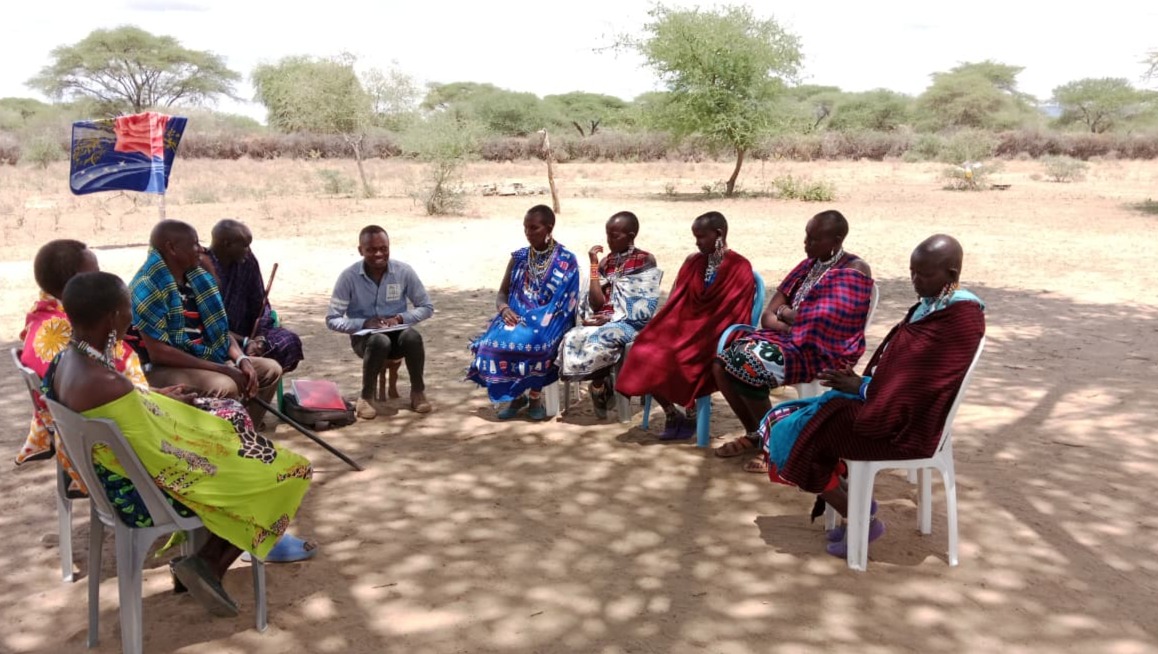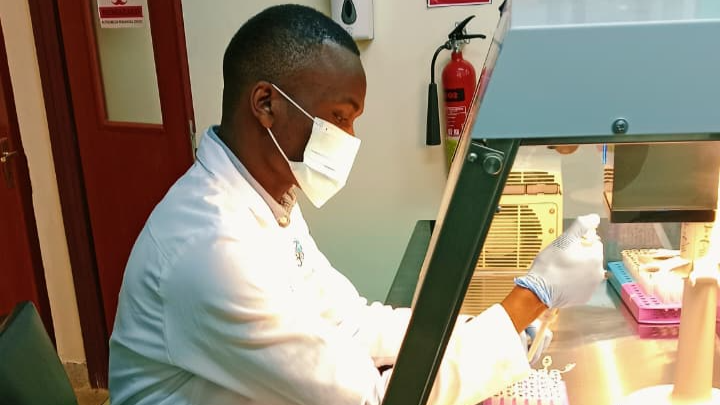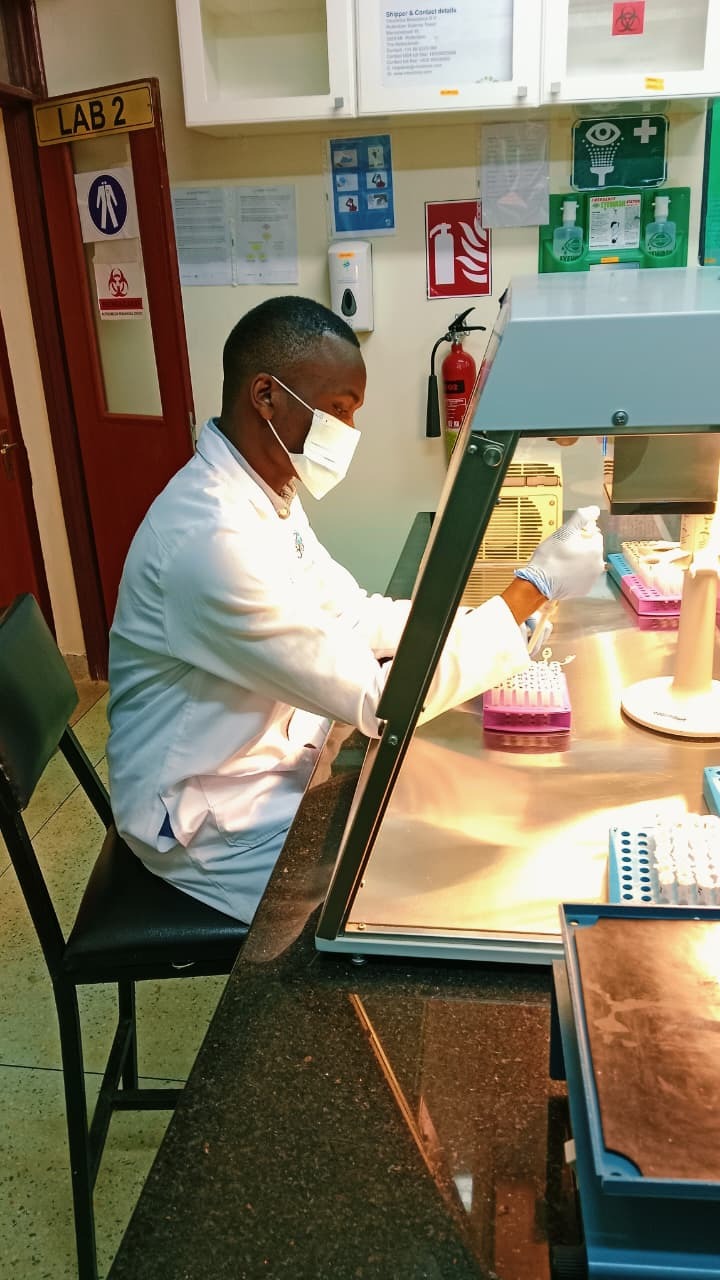- S
My name is Ramadhan Luvandale, and I grew up in Kenya in a family where opportunities were scarce and every step forward in education was hard-won. My mother worked tirelessly, running a small vegetable stall, to keep me and my siblings in school. Her sacrifices taught me that education is not just about personal achievement — it is about lifting families and communities out of poverty.
In January 2026, I will take a step forward as I begin a PhD at the University of Manchester through the Africa Futures Doctoral Scholar Award. This scholarship covers my tuition, research, and living stipend. But it does not cover the mandatory upfront costs required to enter the UK.
What I’m Asking For
My scholarship covers tuition, research, and living costs, but it does not cover the mandatory upfront expenses I must pay before starting my PhD. In February 2024, the UK government raised the Immigration Health Surcharge (IHS) by 66%. With visa fees, flights, and relocation costs, I now face £4,500 — a sum far beyond what I could ever cover from my family’s modest earnings. For me, this is the difference between starting my dream PhD and losing the opportunity of a lifetime. I have worked and saved what I can, but it is still not enough. Without this support, my visa will be denied, and I will lose the opportunity.
How Your Contributions Will Be Used
The full amount I need is £4,500. If we are fortunate enough to raise more, any additional funds will go towards helping me with relocation costs and securing accommodation in Manchester, which has become very expensive. I have been working and saving to cover most of my costs myself, but finding housing close to the university is a big challenge. Any extra support will make a real difference.
Why This Research Matters Now
Right now, a silent and devastating crisis is escalating across East Africa. The Chikungunya virus is spreading rapidly, especially in Kenya, crippling communities with a severity that rarely makes international news. While it may not dominate global headlines like COVID-19, its long-term effects are ruinous: severe chronic joint pain, high fatality in children, lasting neurological damage, and loss of income that pushes already vulnerable families deeper into poverty. This alarming spread is being accelerated by climate change, which is expanding mosquito breeding grounds; by urban growth, which increases human–mosquito contact; and by ecological disruption, which destabilizes natural balances. These forces are converging with dangerous speed.
My PhD Project
The title of my research is:
“Tracking the Transmission of the Chikungunya Virus in Kenya: Genetic Mapping, viral competency , Mosquito Ecology, and Public Health Solutions.”
My project focuses on understanding the transmission dynamics and evolutionary spread of the Chikungunya virus within Kenyan communities. I will combine genetic and geographic mapping on how the virus moves across regions with evolutionary and structural biology to understand how it adapts and evades immunity. This work will be powered by genome sequencing of the virus from recent outbreaks across Kenya, which I will conduct in collaboration with the Kenya Institute of Primate Research (KIPRE), a leading research institute under the State Department of Public Health, Ministry of Health. The project will also create a new scientific bridge between the University of Manchester and KIPRE. For fieldwork and sample collection, I will be working closely with Dr. Joseph Kamau, an infectious disease expert and the lead for Global Health at KIPRE. In Manchester, I will be supervised by Professor Catharine Walton, Professor of Molecular Biology and Population Genetics. The findings from my project will provide locally relevant strategies for the prevention and control of Chikungunya, and will also inform responses to other mosquito-borne diseases across East Africa
Why This Research Is Important
Chikungunya is striking Kenya’s most vulnerable young children, the elderly, and pregnant mothers causing hospitalizations and even deaths. Families lose precious days of work and school, while health facilities strain under rising confirmed cases. Without local genomic surveillance, Kenya relies on foreign data that doesn’t reflect our realities, delaying critical responses. This research will equip doctors and policymakers with precise, locally relevant evidence, enabling faster diagnosis, better treatment, and effective prevention.
A Bit of My Background
I was raised in a family that lived with the daily reality of poverty. My mother’s small vegetable stall supported our schooling, and with that fragile income she taught us resilience, dignity, and the value of education. With that foundation, I earned a Bachelor’s degree in Medical Microbiology from the University of Nairobi and then spent five years on the front lines of public health with the Kenyan Ministry of Health and the Kenya Institute of Primate Research. There, I coordinated national disease impact assessments and worked to improve diagnostics for vector-borne diseases in high-risk areas, including urban slums and western Kenya. My work earned me a scholarship to pursue an MSc in One Health Emerging Infectious and Emergency Research Ethics at the University of Nairobi, where I graduated with Distinction. I have consistently proven my ability to excel in demanding environments and to turn knowledge into action.
Personal Notes
People are dying not in whispers, but in screams that go unheard.
People are dying not in whispers, but in screams that go unheard. In Nairobi’s crowded slums and Kenya’s humid coastal regions, Chikungunya is not just a word it feels like a death sentence. Children are misdiagnosed, sent home with painkillers, only to return weaker, their organs failing. Pregnant women collapse with fever, risking their unborn babies. Hospitals overflow, wards lack protocols, and resources are scarce. This is not just a disease it is a silent massacre.
Grounding My Research in Community

During a community engagement with the Samburu in Kenya, I listened to their stories and discussed ways to combat vector-borne diseases together
Voices of Support
Catharine Walton, University of Manchester:
“Chikungunya’s rapid spread across East Africa is a growing public health threat. Current surveillance struggles to keep pace with its genetic evolution and spread. Ramadhan’s doctoral project, guided by cutting-edge genomic intelligence, will help anticipate outbreaks and tailor responses. As a molecular biologist and population geneticist, I see firsthand the importance of his work in saving lives.”
Joseph Kamau, Infectious Disease Expert and Lead in Global Health.
“ We have had the privilege of mentoring and training Ramah what fascinates me is his unwavering dedication to tackling public health challenges , particularly vector-borne and emerging infections , that devastate vulnerable communities is both profound and personal. This work will build on Kenya disease early warning and surveillance strategy to transform how we detect, track, and respond to viral outbreaks like Chikungunya''.
Want to Know More?
I am very happy to provide more detail about my research. If you’re interested, please ask.



